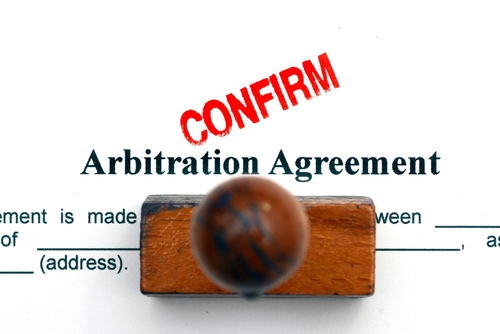By Dora Lane and Emily Hobbs-Wright

Dora Lane
The U.S. Supreme Court ruled today that arbitration agreements requiring that an employer and an employee resolve any employment disputes through one-on-one arbitration do not violate the National Labor Relations Act (NLRA). In an opinion authored by Justice Neil Gorsuch, the Court ruled 5-to-4 that the Federal Arbitration Act (FAA) dictates that arbitration agreements be enforced, and nothing in the NLRA overrides that policy to permit employees to bring class or collective actions when employees have agreed otherwise. Epic Systems Corp. v. Lewis, 584 U.S. ___, (2018).
NLRA Does Not Protect Class and Collective Lawsuits

Emily Hobbs-Wright
In three cases consolidated before the Court, employees alleging wage claims sought to pursue collective lawsuits, joining with other allegedly harmed employees, under the Fair Labor Standards Act (FLSA) and applicable state wage laws. In each case, the employer sought to dismiss the collective lawsuits and instead resolve each employees’ allegations through individual arbitration as provided in arbitration agreements signed by the employees. The employees argued that the class-action waivers in the arbitration agreements were unlawful, violating their rights to engage in concerted activities for their mutual aid and protection under §7 of the NLRA. The employers asserted that the FAA demands that the individual arbitration agreements be enforced, as the NLRA does not override the FAA’s enforcement provision.
The Court ruled that the FAA requires courts to enforce arbitration agreements on the terms that the parties select, subject to courts’ refusal to enforce arbitration agreements “upon such grounds as exist at law or in equity for the revocation of any contract” (e.g., fraud, duress, unconscionability – not arbitration-specific defenses). In the majority opinion, the Court stated that the NLRA does not override the FAA, and that §7 focuses on the right of employees to organize unions and bargain collectively, not on the right to pursue class or collective actions. The Court concluded that neither the NLRA nor the FAA’s savings clause protected the employees’ ability to resolve employment disputes through collective or class action when the employees have agreed to arbitrate their disputes with their employers on a one-on-one basis.
Dissent Focuses On Employee Rights
Justice Ruth Bader Ginsburg wrote a scathing dissent, that was joined by Justices Breyer, Sotomayor, and Kagan. The dissenting opinion notes that an individual employee’s claim against his or her employer for unpaid wages, or a similar employment law violation, may be relatively small and not worth the expense and effort of pursuing, when going it alone. But by seeking redress for commonly experienced wage losses on a collective basis, banding together to confront an employer, employees are placed on a more equal footing with employers and may better safeguard employee rights.
Justice Ginsburg writes that the majority’s decision “is egregiously wrong.” The dissent states that lawsuits to enforce workplace rights fit within the NLRA umbrella of “concerted activities for the purpose of . . . mutual aid or protection.” The dissent points to over 75 years of Board rulings that have held that the NLRA safeguards employees from employer interference when they pursue joint, collective, and class suits related to the terms and conditions of their employment. The dissent further states, “Forced to face their employers without company, employees ordinarily are no match for the enterprise that hires them. Employees gain strength, however, if they can deal with their employers in numbers.” The dissenting justices believe that NLRA §7 rights include the right to use class or collective litigation to resolve disputes over wages and hours, and would hold that class-action waivers in arbitration agreements are unlawful.
Big Win For Employers
In this not-unexpected result, the more conservative members of the Court have sanctioned the use of arbitration agreements by employers to help avoid class actions in the employment context. By using arbitration agreements with their employees, employers are able to resolve employment disputes in front of a neutral arbitrator rather than in the more public setting of a state or federal court. By requiring that disputes be arbitrated on an individual, rather than a class or collective basis, employers avoid lengthy and expensive class action lawsuits that often involve hundreds, if not thousands, of current and/or former employees who allege they have similar claims against the employer. The Supreme Court’s decision is a clear win for employers who now may use individual arbitration agreements to better control the cost, publicity, and liability exposure related to alleged violations of employment laws.

